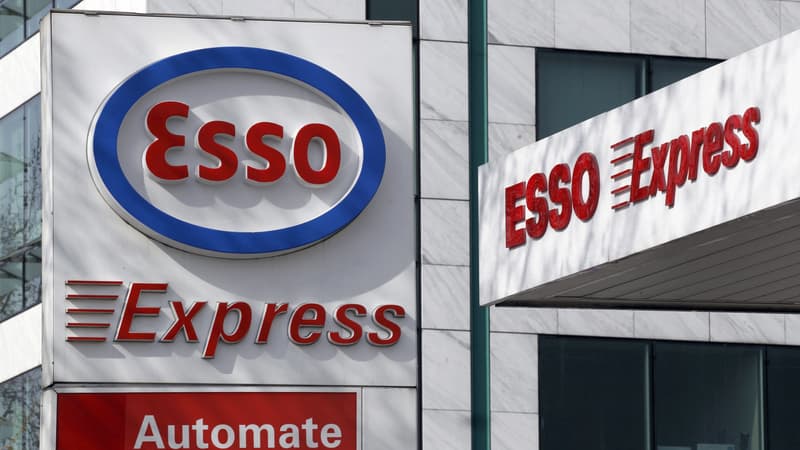The American giant Exxon plunders the results of the French Esso. This is reported by the investment fund Ciam, which is a minority shareholder of the French subsidiary of the American major. Along with three other investors, they filed two lawsuits against Esso. In his plea obtained by BFM Business, his lawyer believes that there is a “manifest conflict of interest” on the part of Exxon, both shareholder, customer and supplier. And that it acts to the detriment of Esso and its minority shareholders.
The Versailles Court of Appeal will deliver its deliberation on October 20, while the three shareholders have already been dismissed in the first instance at the end of 2021. They have also seized the Commercial Court that will decide early next year. This time, they believe in their opportunity to succeed after the hearings that were favorable to them, according to them. Ciam and its allies weigh just under 3% of the capital of Esso, which is listed on the Paris Stock Exchange. Opposite, Exxon owns 83% of its subsidiary.
Oil purchases at the expense of Esso
To support its point, Ciam relies on business relationships between Esso and Exxon. The former buys all its oil from its main shareholder to refine it at its two factories in Gravenchon, near Le Havre, and Fos-sur-Mer.
In 2019, Esso bought more than 7,000 million euros of oil from Exxon, without disclosing the price per barrel applied… Minority shareholders suspect that the largest US company minimizes the income of its subsidiary and charges it undue charges.
“Oil acquisitions from Exxon are made to the detriment of Esso, can be read in the lawyer’s conclusions. Esso ‘buys’ oil from Exxon by paying a commission.” While Exxon must pay for this exclusive supply… So “Esso pays for crude oil delivery by ship. If the price has dropped before the ship is unloaded, Esso resells the crude oil to Exxon at a lower price, “, added the report.
Similarly, Ciam points the finger at resales of refined products, such as oils or fuel oil, from Esso to Exxon. In 2018 and 2019, Exxon thus benefited from prices three times lower than those charged by Esso to its customers. The French subsidiary pointed out, however, that these products could have a different quality. “Nous demandsons à connaitre los prix d’achat et de reventa de pétrole et les prix de vente de produits raffinés à Exxon pour savoir s’ils correspondent aux prix de marché”, explains Julien Visconti, l’avocat qui porte l’affaire devant Justice.
Take Esso off the Stock Exchange
Contacted, management disputes these allegations. “We have intra-group agreements that are set under market conditions,” explains a spokesman who recalls that the auditors have validated these agreements. “Certain price differences are significant and potentially constitute margin transfers from Esso to its majority shareholder”, responds Julien Visconti. He estimates that the deficit amounted to more than a billion euros in 2018.
They pressure Esso to reveal the details of its transactions with Exxon that they consider “opaque”. A utopian goal when the American major owns 83% of Esso. Ciam is certainly aiming to pressure Exxon to delist from the Esso Stock Exchange and buy back minority shares. The fund estimates that valuing oil shares at market price, Esso should be worth €1.5bn compared to €500m today.
Source: BFM TV


